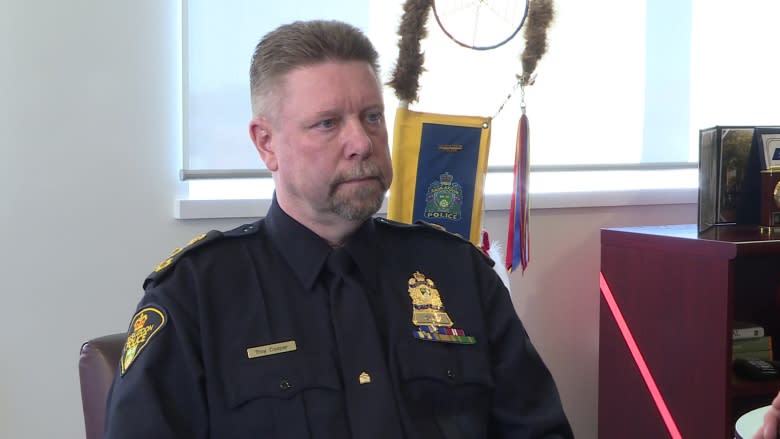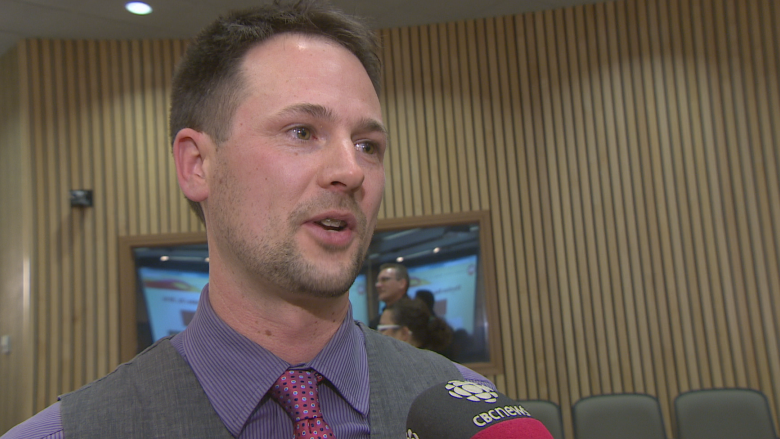'We're both guessing at this point': Regina, Saskatoon police vary wildly on pot policing cost estimates
The Saskatoon Police Service's estimate for how much legal marijuana will add to the cost of policing in the city is less than half of the estimate put forth by Regina's force.
Regina police presented information to city council, which included an approximately $1.2 million estimate, in February, while Saskatoon's Board of Police Commissioners reviewed a plan featuring an approximately $500,000 estimate earlier this month.
"We're both guessing at this point, to be frank," said Saskatoon chief Troy Cooper.
"Some of the early projections around the cost of this legalisation is being done before the legislation is rolled out."
The federal government still plans to have pot legalized by summer, but the date could be pushed back.
No roadmap yet
The Saskatchewan government has yet to fully reveal its pot plan for the province.
Saskatoon's policing projection includes costs related to buying roadside screening devices, training officers, getting another drug-detecting dog and some other staffing costs.
Some costs will be incurred right away, while Cooper predicts others will affect the police service two or three years in the future.
The numbers used in the report may not be included in the service's 2019 budget.
Roadside screening equipment, for example, will need to be purchased, but legislation concerning the equipment has not been completed.
"There are no pieces of equipment for us to purchase or training for us to do yet," Cooper said.
"And we're talking about expenditure budgets, not net budgets, and we don't know who our partners will be in some of these expenses."
The Saskatoon Police Service may partner with the provincial government, SLGA, or SGI to defer some of the policing costs.
Councillor: 'they were really high-balling'
When the Regina Police Service presented its numbers to city council, councillor Andrew Stevens was sceptical.
He said he was surprised at the notion that regulating a legal substance would cost more than enforcing an illegal one.
"They were really high-balling it because they didn't want to come short. I get that prudent approach," he added.
The larger issue, he said, is the policing of the opioid and meth trades. Often, marijuana charges are laid as a consequence of police looking for other drugs.
Part of Stevens' recommendation to Regina police is to look to the United States, where marijuana has been legalized in several states.
Those jurisdictions operate in a free market, though, whereas Saskatchewan may not see marijuana flood the market in the same way.
This leaves many municipalities and police services in new territory without much of an idea of what to expect.
"Even as current as tomorrow, we're having further conversations with our provincial government about what this is going to look like," said Saskatoon police chief Troy Cooper.
"We're planning for the summer, but it could be much later."
Regardless, he said the police service will be ready, "whenever it's legalized."




